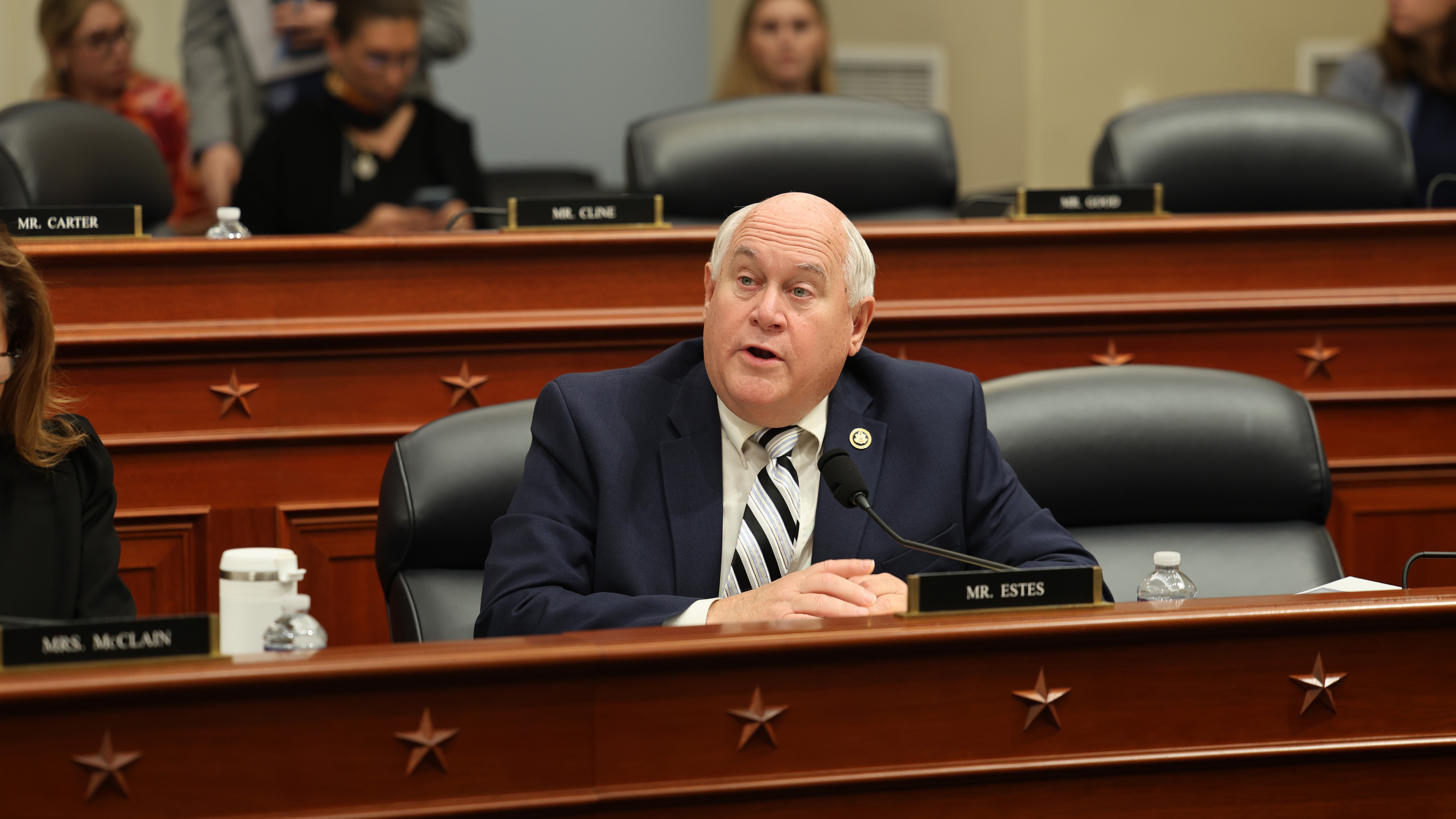Today, the House Budget Committee passed Rep. Ron Estes’ (R-Kansas) Executive Action Cost Transparency Act out of committee. This bill will help increase transparency and accountability by requiring the Congressional Budget Office (CBO) to include in the baseline or baseline update a separate table detailing the cost of judicial and executive actions (including proposed rules, finalized rules, executive orders, and memorandum) issued since the publication of the last baseline that have a cost of more than $50 billion over 10 years.
The CBO publishes and updates a baseline each year outlining our nation's current fiscal situation and the 10-year economic outlook. It is used to help measure the cost of legislative proposals and their fiscal impact on economic growth, inflation and our nation's deficit.
“In order to legislate effectively and tackle our growing debt crisis, lawmakers in Congress need to know how much money is being spent across the whole government,” said Rep. Estes. “By requiring the CBO to delineate the cost of certain actions that CBO considers, my bill will help Congress and the American people better grasp the cost of administrative actions so we can get our spending under control.”
This year marks the 50th anniversary of the Congressional Budget and Impoundment Control Act of 1974 that established the Congressional Budget Office. Congress has a duty to ensure CBO is fulfilling its mission of providing lawmakers with accurate, timely and complete information and analysis on legislation and the economy. Rep. Estes’ bill is part of a package of CBO reform bills that passed out of the Budget Committee today.
You can read Rep. Estes’ remrks below.
Watch video of Rep. Estes' remarks here.
Full Remarks:
Thank you, Mr. Chairman. I really appreciate the opportunity to mark up these critical bills to reform the Congressional Budget Office, including my bill, the Executive Action Cost Transparency Act.
Mr. Chairman, as members of the Budget Committee, we’re responsible for producing a budget that will guide spending for the next fiscal year in a fiscally responsible manner. While we know our budget and appropriations processes are broken, I want to commend you, Mr. Chairman, for making sure that this committee actually follows through with our work and passes budgets – with our budget this year being the second time in 30 years that we’ve passed a budget before the President’s budget is released.
However, in order to accurately produce a budget, we need to have all of the facts – and that’s going to require things like this minor information awareness for us in terms of changing how the Congressional Budget Office does some of its processes.
CBO already factors executive and judicial actions into their baseline, and my bill would not change that practice at all. However, CBO does NOT delineate the cost of each of these individual actions that are factored into their baseline or provided as baseline updates as a resource for Members, staff or the general public. This reform simply requires the CBO to pull out a separate table of judicial and executive actions that meet a threshold of $50 billion over ten years— information already included in their baseline. In essence, the bill provides more transparency by delineating the cost of each of these actions that CBO factors in, so that Congress and the American people can have a resource to understand the cost of those executive actions.
When lawmakers don’t have access to the details of non-legislative spending, it’s like a family or small business making financial decisions while someone else is spending some of the money on unknown goods and services.
Today, when our national debt is at $35.3 trillion and climbing, we still have to accountability and transparency over all federal spending.
The Chairman has been using the phrase “Reverse the Curse” to talk about the detriment of our national debt and the need to change course and we don’t even know how bad that curse is, which is why we need the reform bills we’re discussing today.
Administration after administration, both Republican and Democrat, have issued costly executive actions that over the last several decades have increased our national debt and continue to have an impact. For example, in just the last three and a half years alone, the Biden-Harris administration has issued over 130 executive actions that have cost taxpayers more than $2 trillion – not to mention additional judicial and administration actions in that time – demonstrating just how costly non-legislative actions can be. And it’s going to continue into the future unless we do something like this, whether it’s a Republican or Democrat that’s in the White House.
My Executive Action Cost Transparency Act would require the CBO to provide a comprehensive and centralized list of costly administrative actions since their last baseline or baseline update in order to increase transparency and streamline information. This would provide us in Congress and the American people with needed details on D.C.’s spending, which would include proposed rules, final rules, executive orders, memorandums, and judicial actions since the last baseline that met a threshold of $50 billion over 10 years.
This bill isn’t controversial – it just makes sense. There isn’t anything in this bill that should prevent Democrats and Republicans from voting in favor of this legislation – it’s a bill that increases transparency. CBO already factors in executive and judicial actions into their baseline, but doesn’t break out those details in a separate resource for Congress. As lawmakers elected by our constituents, we should know how much our government is spending on things before we pass new legislation – and spend more money. And quite frankly, the American people deserve to know as well.
I’m grateful that on this committee, we have members who understand the need to tackle our national debt and who are willing to vote in favor of common sense reforms like the one I’m offering today. While not perfect, the CBO is our best way to gauge legislation and understand its cost to taxpayers. Having timely and accurate information is imperative to help us make the best decisions for the individuals and families we represent.
I can't fathom why members would vote against this bill, since so many members say that they want more transparency in government. This bill is providing another tool to help us address the national debt crisis we face today, something that most of us – Democrat and Republican – recognize is a very real threat to our nation. Voting against this bill would be telling your constituents that you're against transparency and accountability.
I urge my colleagues – Republican and Democrat – to join me in reforming the CBO and bringing greater transparency and accountability to administrative activity. I yield back, Mr. Chairman.








